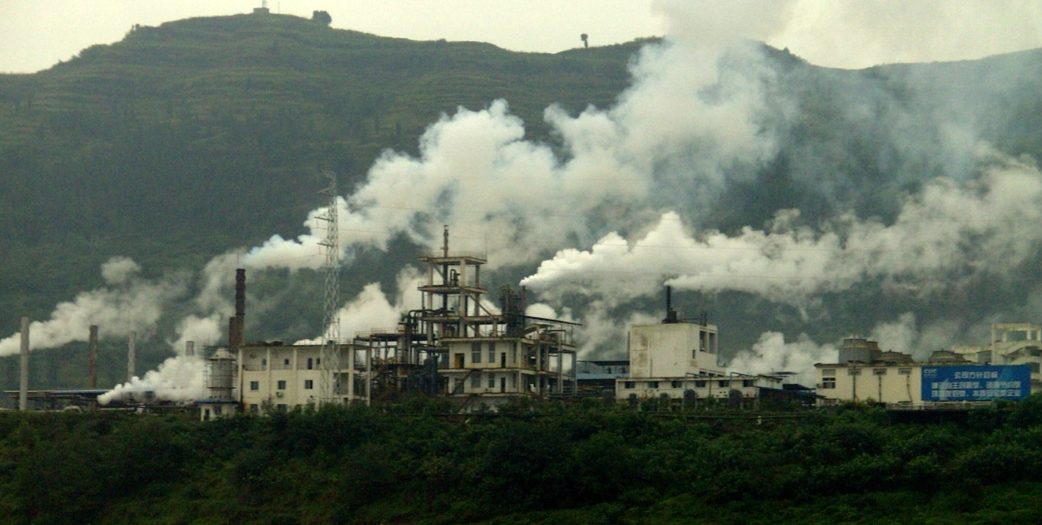
The Life Cycle Land Footprint of Energy Infrastructure with Dr. Sarah Jordaan
April 25, 2018 | 12:30-2pm
Johns Hopkins School of Advanced International Studies
Rome Building 410
1740 Massachusetts Avenue, NW
Washington, DC 20036
Life cycle assessment (LCA) is a cradle-to-grave method that quantifies the environmental impacts of products and processes from materials extraction to waste disposal. In this seminar, the relationship between energy infrastructure and land impacts will be explored using a life cycle perspective, starting with unconventional oil and gas development and ending with renewable energy. Energy infrastructure associated with unconventional oil and gas development is complex, involving life cycle stages from production through processing and transportation by pipelines to end use. Jordaan et al. (2017) developed a method for robust estimation of the life cycle land use of electricity generated from natural gas that was produced in the Barnett Shale of Texas. Approximately 500 sites in the Barnett shale of Texas were sampled across five life cycle stages (production, gathering, processing, transmission, and power generation). The analysis integrated inventories of infrastructure, satellite imagery and well-level production. For natural gas-fired electricity in the Barnett region of Texas, the total life cycle land use was dominated by midstream infrastructure, particularly pipelines. A sensitivity analysis revealed that results were sensitive to power plant heat rate, facility lifetime, number of wells per site, well lifetime, and pipeline right-of-way.
Event Schedule
Introduction
Presentation
The Lifecycle Land Footprint
The Lifecycle Land Footprint
12:30 PM to 02:00 PM
Johns Hopkins SAIS
Dr. Sarah Jordaan
Add To Calendar
Share Post
Event Description
The Life Cycle Land Footprint of Energy Infrastructure with Dr. Sarah Jordaan
April 25, 2018 | 12:30-2pm
Johns Hopkins School of Advanced International Studies
Rome Building 410
1740 Massachusetts Avenue, NW
Washington, DC 20036
Life cycle assessment (LCA) is a cradle-to-grave method that quantifies the environmental impacts of products and processes from materials extraction to waste disposal. In this seminar, the relationship between energy infrastructure and land impacts will be explored using a life cycle perspective, starting with unconventional oil and gas development and ending with renewable energy. Energy infrastructure associated with unconventional oil and gas development is complex, involving life cycle stages from production through processing and transportation by pipelines to end use. Jordaan et al. (2017) developed a method for robust estimation of the life cycle land use of electricity generated from natural gas that was produced in the Barnett Shale of Texas. Approximately 500 sites in the Barnett shale of Texas were sampled across five life cycle stages (production, gathering, processing, transmission, and power generation). The analysis integrated inventories of infrastructure, satellite imagery and well-level production. For natural gas-fired electricity in the Barnett region of Texas, the total life cycle land use was dominated by midstream infrastructure, particularly pipelines. A sensitivity analysis revealed that results were sensitive to power plant heat rate, facility lifetime, number of wells per site, well lifetime, and pipeline right-of-way.
About the Speaker
Dr. Sarah Jordaan is an Assistant Professor of Energy, Resources and Environment at Johns Hopkins SAIS. Her research is aimed at uncovering the environmental and economic trade-offs related to energy decisions and more typically those trade-offs related to the life cycle of energy technologies. Her research is at the intersection of science, technology, and policy, so her publications focus on not only life cycle assessment but also more broadly on technology assessment, energy policy, and innovation. Prior to joining Johns Hopkins SAIS, Dr. Jordaan was an Assistant Professor of Energy Policy and Politics at the University of Calgary.
Please RSVP to Eventbrite: forthcoming
- 00
Days
- :
- 00
Hours
- :
- 00
Minutes
- :
- 00
Seconds
Venue Details
Johns Hopkins School of Advanced International Studies
Johns Hopkins School of Advanced International Studies
Rome Building 410
1740 Massachusetts Avenue, NW
Washington, DC 20036
